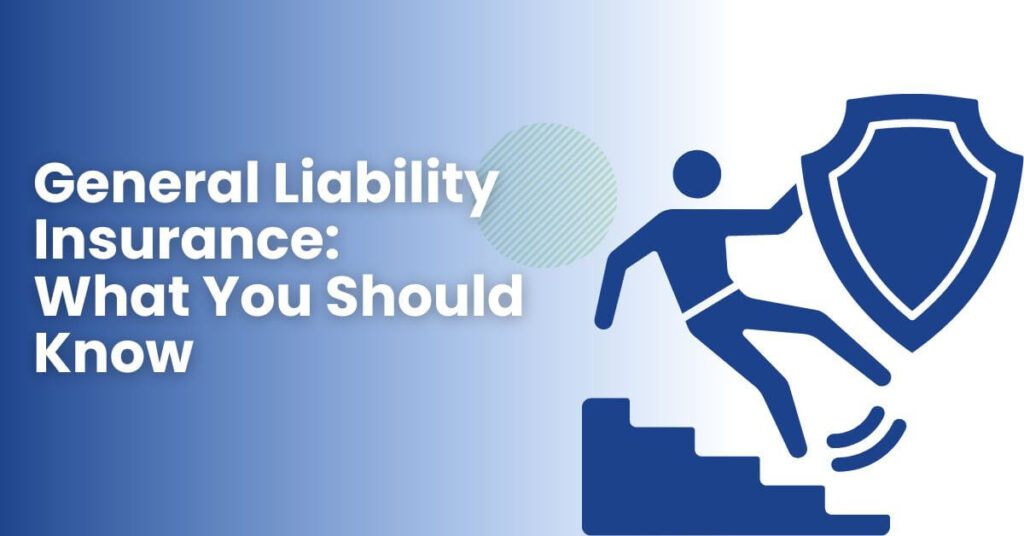General liability insurance is one of the most important types of insurance that you can buy for your business. General Liability Insurance protects against lawsuits resulting from bodily injury or property damage, and it covers defense costs in the event you are sued by customers, vendors, or employees. In this blog post, we will break down why you should have General Liability insurance. This coverage is very important and is often bundled with a standard Business Owner’s Policy (BOP).
For example, if someone slips on your sidewalk or trips over a curb and sues you, your general liability policy will help pay for their medical bills, lost wages, and pain and suffering costs. The policy also covers any damage done to their property as well as any other losses they might incur as a result of the incident.
Who Needs General Liability Insurance?
If you are a business owner, it’s important to understand there are always risks involved. That’s why we recommend most businesses carry at least $1 million in general liability limits.
If you don’t have enough coverage, an unexpected injury claim could put your business on the brink of bankruptcy. Anyone who suffers an injury or property loss related to your business could potentially sue you for damages and that is where your general liability coverage would step in.
How Does General Liability Insurance Work?
If someone gets hurt on your property or if something is damaged during their visit, they might sue you for compensation. That is where this type of insurance comes in handy because it covers costs related to defending yourself against these claims and paying out money if they win their suit against you. It also covers any court fees or fines prosecutors might levy against you as a result of a lawsuit brought against your business.
What Does General Liability Cover?
General liability insurance is a broad form of commercial liability insurance that provides protection against claims of negligence or non-compliance with any applicable federal or state laws. General Liability Insurance may apply to:
- Personal injury claims, including bodily injury and property damage
- Medical payments to others
- Legal defense costs incurred in defending a claim or lawsuit arising from bodily injury, property damage and advertising injury
What does General Liability Insurance Not Cover?
General liability insurance provides broad coverage, but it doesn’t cover every possible scenario. Here are some examples of what general liability insurance does not cover:
- Product liability – Product liability covers accidents caused by faulty products. General liability policies do not include product liability, so you’ll need to purchase a separate policy if you sell products and want to protect yourself against product-related lawsuits.
- Workers’ compensation – Workers’ compensation pays medical bills for employees who are injured on the job. Some workers’ compensation policies will reimburse employers for lost wages as well, but this is not included in most general liability policies.
- Professional malpractice – If you’re a doctor or lawyer, professional malpractice insurance may be required by law in your state. This type of policy covers any mistakes or errors in judgment made by professionals like doctors and lawyers while performing their duties for clients or patients
Evaluating Your Risks
The first step in choosing the right general liability insurance coverage is evaluating all the risks involved with running your business. You need to look at all the possible sources of liability.
If you’re starting a new business in an industry with a high risk of claims, like construction or manufacturing, you’ll want to make sure that your general liability insurance policy covers those risks. However, if your business is fairly low-risk (for example, if it involves selling products online), it might not be worth paying for coverage that doesn’t apply to your business.
Assess your business needs
You also need to consider how much coverage you need. General liability insurance policies typically come with limits on how much money they’ll pay out in any given year or over the life of the policy (known as annual aggregate limits). Make sure that the policy will cover most of the damages you’re likely to face — but don’t buy more than you need just in case something bad happens!
How to Get General Liability Insurance
When you’re ready to buy general liability insurance for your small business, contact an insurance broker. A broker can help you compare different companies’ policies and prices, as well as determine the amount of coverage you need based on your specific needs and budget. Some brokers work with multiple insurance companies and may be able to offer discounts if your company carries other types of insurance coverage through them.
Compare insurance policies. Once you’ve narrowed down your options based on the criteria above, and with the help of an independent broker if you are working with one, compare policies from different companies side-by-side before making a decision about which one best suits your needs. This will help ensure that you’re getting the best deal possible on coverage.
Protect Your Business
The importance of general liability insurance is summed up in one word: protection. General liability insurance is designed to protect your business from the financial consequences of lawsuits.
The importance of general liability insurance goes beyond just protecting your business assets. General liability insurance also provides peace of mind for both you and your employees, who can focus on their jobs knowing that they don’t have to worry about getting sued. The right amount of coverage will help protect your company’s assets while still allowing you to keep costs low.
Contact Colangelo Group today for more information about our general liability insurance options in Westchester County, and beyond.




